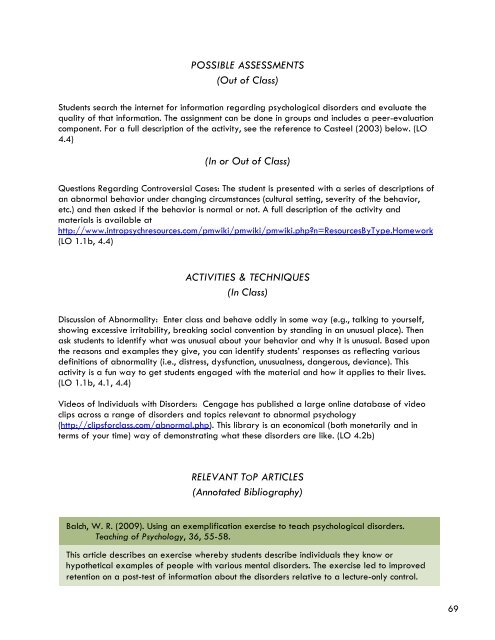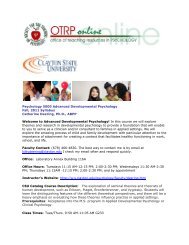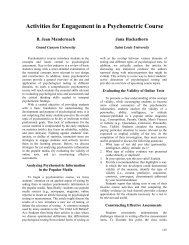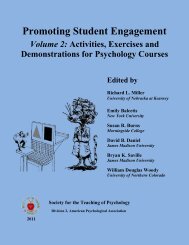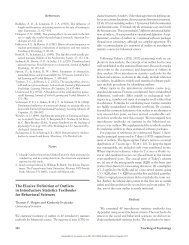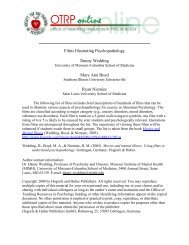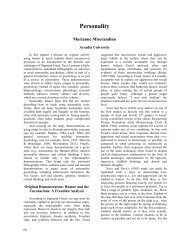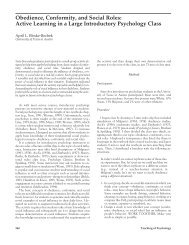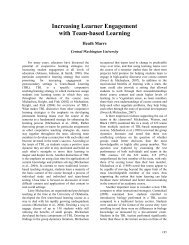INTRODUCTORY PSYCHOLOGY TEACHING PRIMER Early Career ...
INTRODUCTORY PSYCHOLOGY TEACHING PRIMER Early Career ...
INTRODUCTORY PSYCHOLOGY TEACHING PRIMER Early Career ...
You also want an ePaper? Increase the reach of your titles
YUMPU automatically turns print PDFs into web optimized ePapers that Google loves.
POSSIBLE ASSESSMENTS<br />
(Out of Class)<br />
Students search the internet for information regarding psychological disorders and evaluate the<br />
quality of that information. The assignment can be done in groups and includes a peer-evaluation<br />
component. For a full description of the activity, see the reference to Casteel (2003) below. (LO<br />
4.4)<br />
(In or Out of Class)<br />
Questions Regarding Controversial Cases: The student is presented with a series of descriptions of<br />
an abnormal behavior under changing circumstances (cultural setting, severity of the behavior,<br />
etc.) and then asked if the behavior is normal or not. A full description of the activity and<br />
materials is available at<br />
http://www.intropsychresources.com/pmwiki/pmwiki/pmwiki.php?n=ResourcesByType.Homework<br />
(LO 1.1b, 4.4)<br />
ACTIVITIES & TECHNIQUES<br />
(In Class)<br />
Discussion of Abnormality: Enter class and behave oddly in some way (e.g., talking to yourself,<br />
showing excessive irritability, breaking social convention by standing in an unusual place). Then<br />
ask students to identify what was unusual about your behavior and why it is unusual. Based upon<br />
the reasons and examples they give, you can identify students’ responses as reflecting various<br />
definitions of abnormality (i.e., distress, dysfunction, unusualness, dangerous, deviance). This<br />
activity is a fun way to get students engaged with the material and how it applies to their lives.<br />
(LO 1.1b, 4.1, 4.4)<br />
Videos of Individuals with Disorders: Cengage has published a large online database of video<br />
clips across a range of disorders and topics relevant to abnormal psychology<br />
(http://clipsforclass.com/abnormal.php). This library is an economical (both monetarily and in<br />
terms of your time) way of demonstrating what these disorders are like. (LO 4.2b)<br />
RELEVANT TOP ARTICLES<br />
(Annotated Bibliography)<br />
Balch, W. R. (2009). Using an exemplification exercise to teach psychological disorders.<br />
Teaching of Psychology, 36, 55-58.<br />
This article describes an exercise whereby students describe individuals they know or<br />
hypothetical examples of people with various mental disorders. The exercise led to improved<br />
retention on a post-test of information about the disorders relative to a lecture-only control.<br />
69


